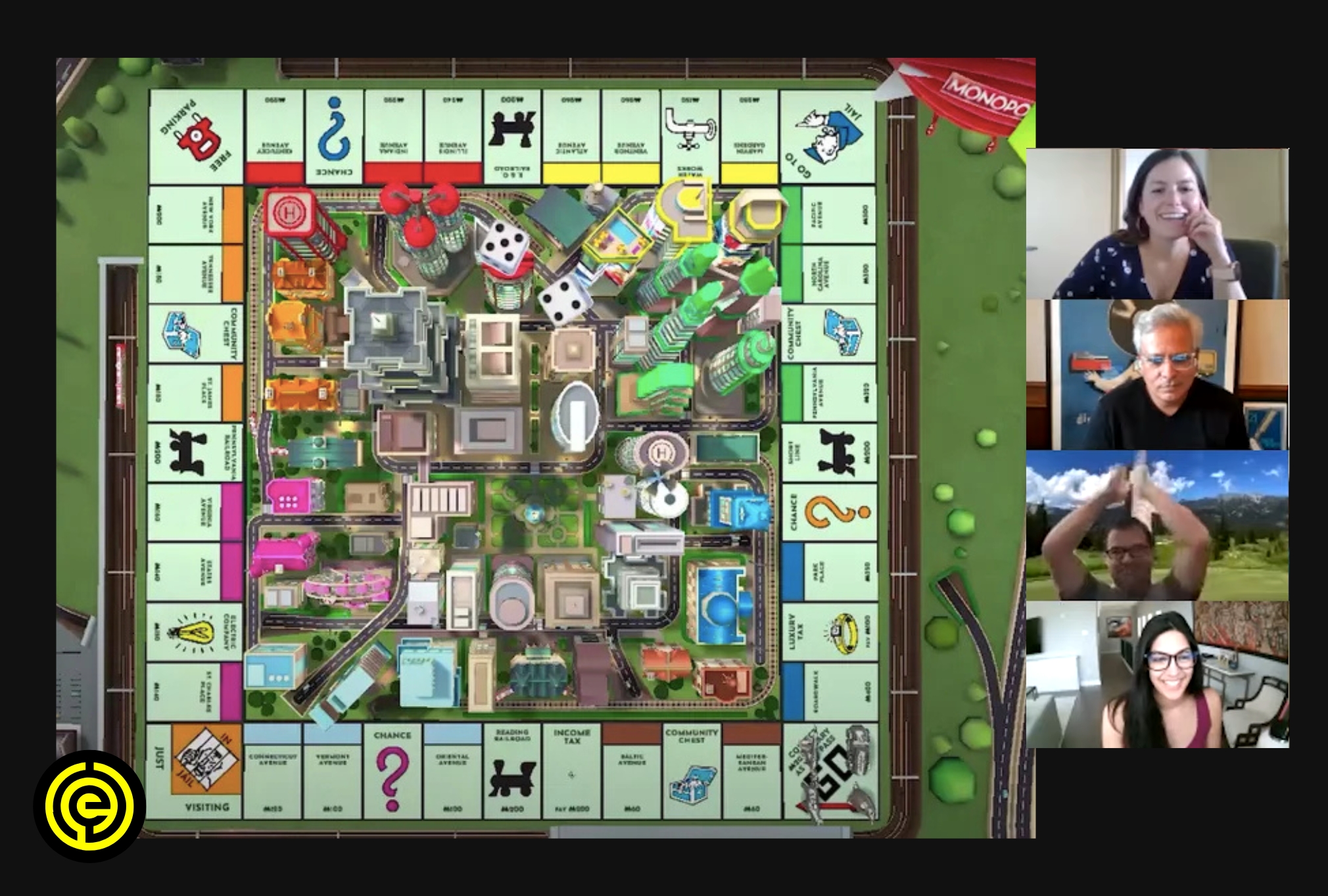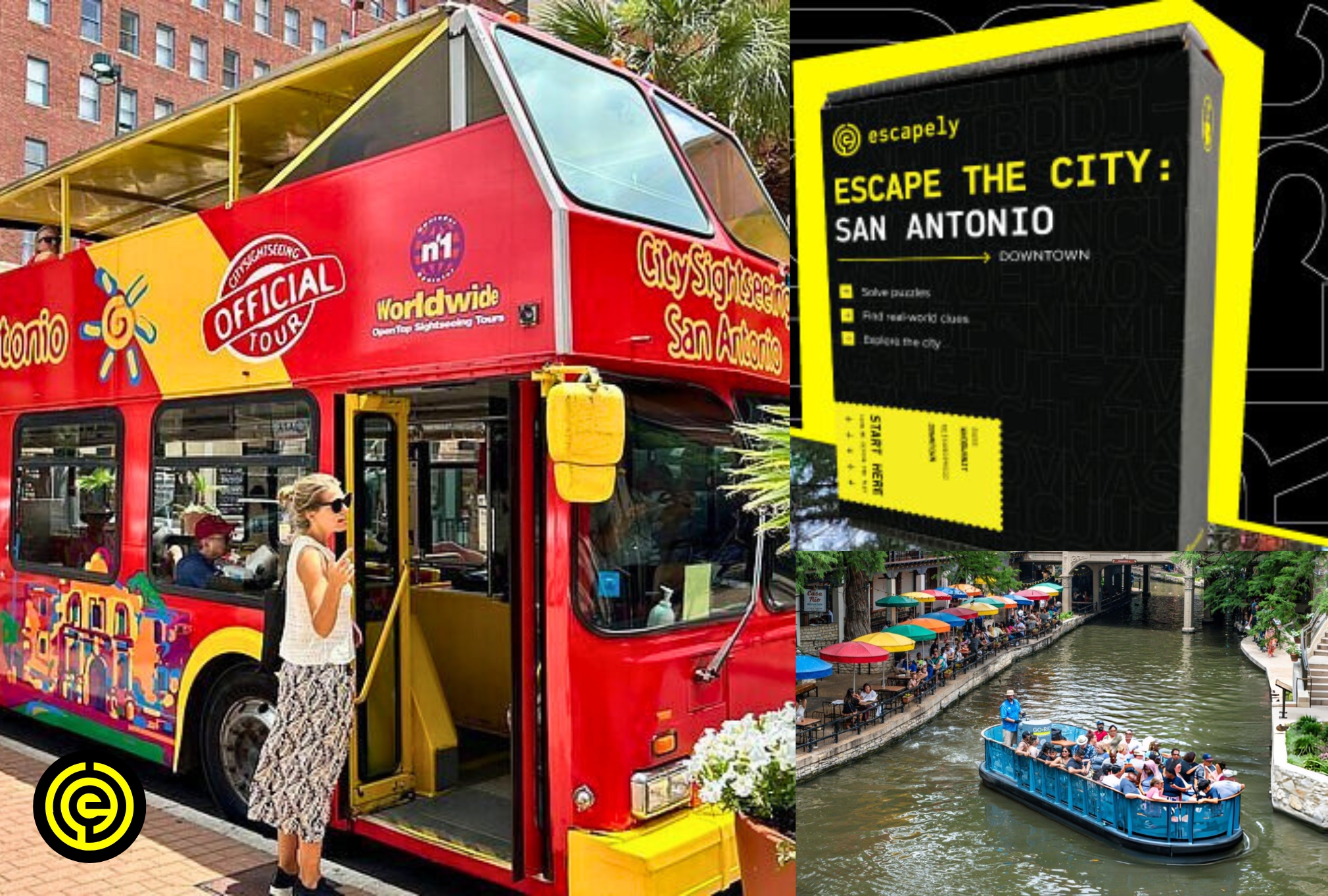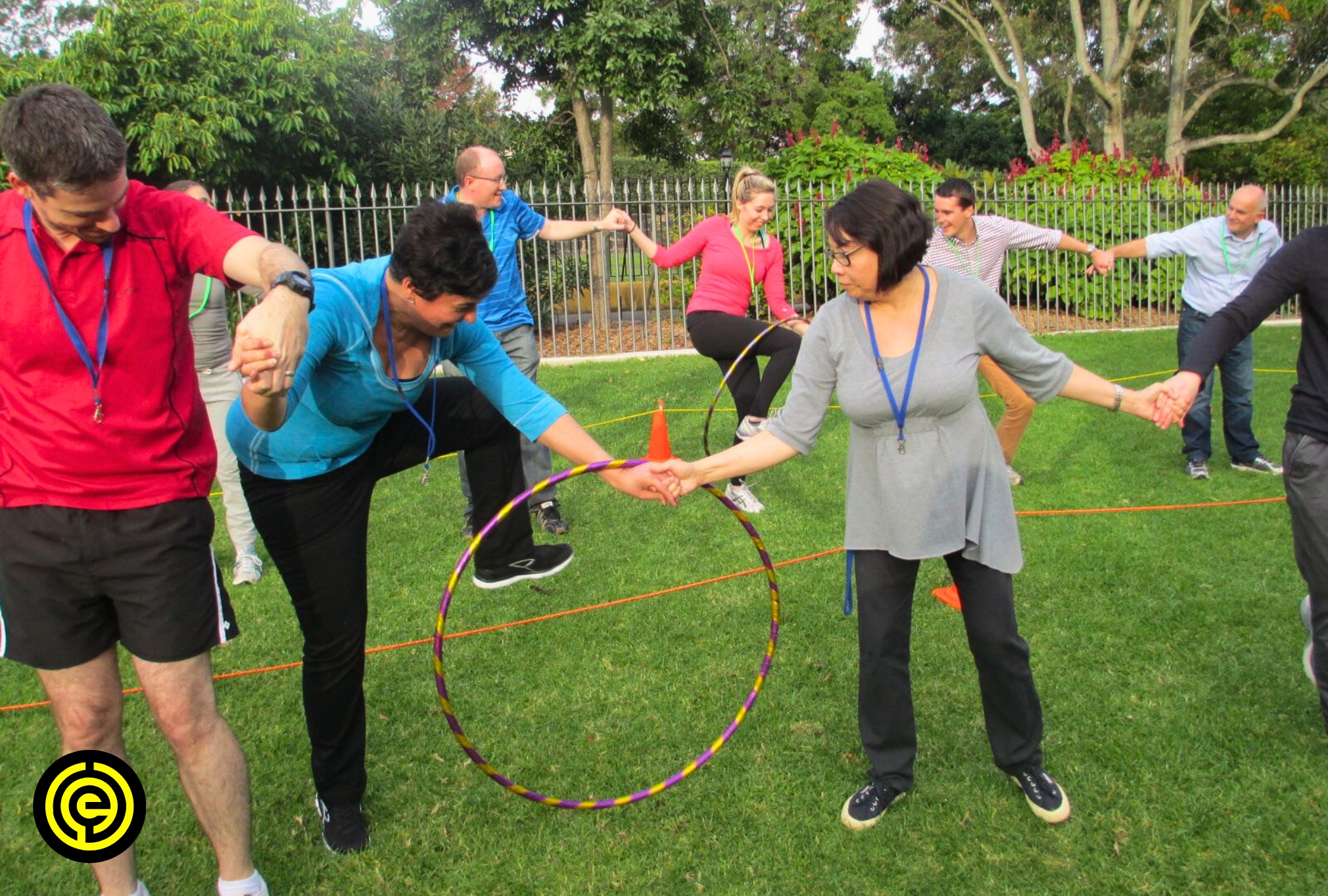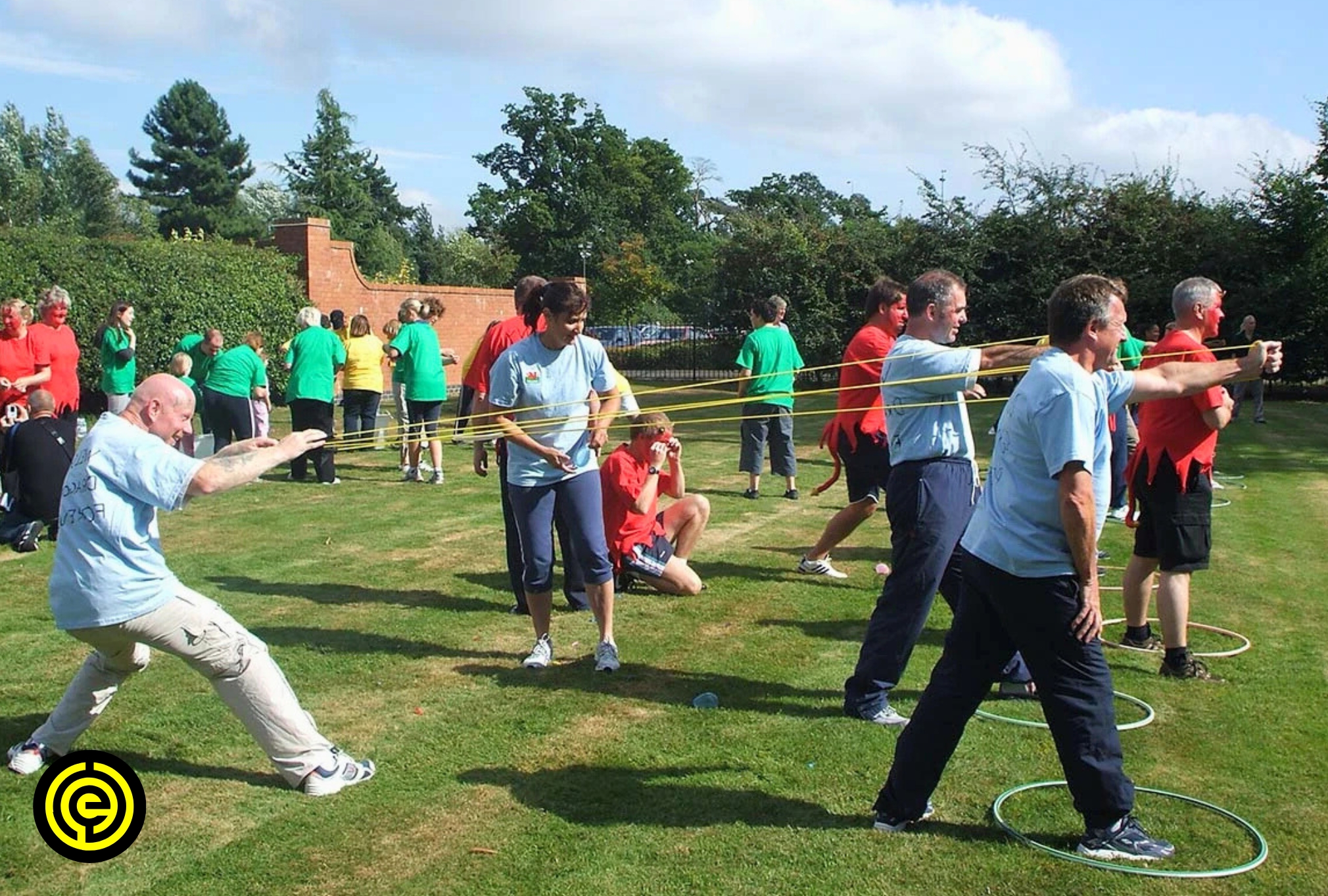Escape room games are a popular and immersive experience that breaks from traditional entertainment norms. They allow people to work together to overcome challenges in a setting straight out of their wildest fantasies.
Have you wondered if there was an escape room age limit that could prevent kids or grandparents from joining in the fun? Are there people limited from entering escape rooms due to their age?
This quick guide will explore how age factors impact personal and professional aspects of escape rooms, escape room age requirements, the reason and benefits of age limits, and more! Additionally, you can book a demo with us to learn more about virtual escape rooms perfect for remote teams.
The Dynamics of Escape Rooms for Kids
How does a physical or virtual escape room for kids ignite curiosity and provide an enjoyable learning experience? Discover how these virtual and physical spaces are crafted for young, adventurous minds.
A. Age-Appropriate Challenges
Age-appropriate challenges in kids’ escape room games tend to focus on puzzles meant to educate them.
Cognitive challenges include age-appropriate problem-solving and critical thinking. At the same time, physical activities enhance motor skills for their specific age group.
The great thing about these puzzles is that they are designed to match children’s developmental stages. These puzzles engage young minds and bodies and offer a stimulating experience to bring the whole family together.
Themes and puzzles are even crafted to align with the kids’ interests. This ensures a captivating and educational journey that will leave children wiser and happier by the end.
B. Safety and Supervision
Escape game providers focus on secure facilities, age-appropriate props, and emergency procedures, as it is crucial to create a safe environment for the children.
Parental involvement is critical for ensuring a safe and enjoyable experience.
There must be clear communication between staff and parents at all times, though the best venues allow you to gather the whole family together for a worry-free time.
This approach ensures kids’ escape room games are entertaining while being safe and beneficial. All the games should provide a secure space for puzzle-solving adventures where neither kids nor parents should have any worries.
C. Recommended Age Ranges
Most escape rooms have escape room age requirements based on puzzle complexity. Some strongly suggest a minimum age range of 14-18 years or older.
- Younger Children (5-8 years): Some have simpler puzzles and child-friendly themes.
- Pre-Teens (9-12 years): Many offer challenges suitable for their cognitive abilities.
- Teenagers (13-17 years): Can enjoy a variety of themes and settings, including more complex puzzles.
- Adults (18+ years): Designed with various challenges and adult themes for a mature audience.
Check with specific venues to learn their age recommendations. Parental discretion is vital for a positive experience for younger children, so only go where you are sure there are puzzles designed for them.
Age Considerations in Corporate Escape Room Setups
Explore how age factors shape teamwork and problem-solving in corporate escape room games.
A. Team Building and Diversity
Escape room games provide a platform for employees and employers to develop camaraderie and synergy as different generations are forced to collaborate, communicate, and problem-solve in a simulated “life-or-death” situation.
Employees should engage in age-inclusive activities like escape rooms. It allows corporate teams to enjoy various perspectives and skills while ensuring every team member brings something to the event.
This inclusivity strengthens relationships across all age groups. It can foster a more unified and innovative work environment forged by mutual experiences.
Escape rooms are thus crucial in promoting teamwork and embracing diversity of thought and age in corporate settings.
B. Balancing Skill Levels
Balancing skill levels in corporate escape rooms means recognizing diverse skills based on age or experience.
To promote inclusivity, event organizers can use strategies like offering a variety of puzzles that match the skill levels of those present. Venues are meant to encourage teamwork and only provide hints when needed.
This ensures that everyone, regardless of age, feels valued. Everyone can contribute to the victory, creating a positive and collaborative team atmosphere whether you have a young or old team.
Defining Age Limits: Too Young or Too Old?
Learn more about age boundaries in this immersive adventure setting.
Find the ideal balance between challenges and enjoyment for all participants of all ages in this section.
Too Young for Escape Rooms
Are some adventurers just too young for escape rooms? Below are some considerations.
A. The Ability to Think Critically
Players in escape rooms must engage in critical thinking. They need to analyze their surroundings and solve puzzles in order to progress.
Younger players may find escape room puzzles too challenging. That is because they are still developing their critical thinking skills.
To ensure full engagement, operators may set higher age limitations.
They will consider the need for advanced problem-solving abilities in navigating complex challenges and solving tricky puzzles.
B. The Ability to Follow Directions
Following instructions is crucial in escape rooms, especially when dealing with tasks like operating locks, deciphering clues, and interacting with props that may injure small children.
Generally, children aged 14 and above show better capabilities in this area. This is due to improved cognitive development, ensuring they can safely navigate escape rooms and make the most of the experience.
C. The Fear Factor
Some scenarios add a thrilling challenge with fear-inducing elements. Children aged 10-12 may find these situations too intense or overwhelming.
To create a positive environment, escape room operators may need to set age limitations for these scenarios. It is understood that adult players can better handle and appreciate the intensity without being affected by fear.
D. The Level of Difficulty
Escape rooms demand players solve puzzles and decipher intricate clues with varying difficulty levels.
Players will need a respectable amount of cognitive and problem-solving skills.
Higher age limits are set to adapt to the demanding nature of these challenges. They ensure players have the cognitive development needed to tackle the complexities of these escape rooms.
E. The Theme
Themes like horror or suspense may be better suited for adult players due to their frightening elements.
Children around 16 years old and above can better understand and enjoy these themes without being affected.
Setting age limits ensures participants can enjoy the themed experience in a way that aligns with their maturity and emotional readiness.
Too Old for Escape Rooms
As individuals age, physical limitations may pose challenges that make physical escape rooms too difficult to enjoy. One innovative solution that allows older people to still join in the fun is exploring what is a virtual escape room and its benefits.
Virtual escape rooms are a great alternative to physical ones, offering immersive challenges without physical barriers.
If you still want to give them a physical space, we recommend creating an inclusive escape room experience by making puzzles accessible. Provide comfortable seating, adjust time limits, enhance lighting, and incorporate interactive technology.
Embracing virtual or even hybrid options ensures older players can continue enjoying thrilling adventures.
Do you want to enjoy escape rooms tailor made for remote teams? Book a demo with us to learn more about our exciting scenarios and themes!
Setting Age Limits: Corporate vs. Individual Considerations
Join us as we answer the question, “How many people do you need for an escape room?” and how we can balance and optimize corporate and individual experiences to give people the most thrilling adventure possible.
A. Corporate Event Planning
Corporate event planning involves tailoring escape room challenges for team-building. This includes deciding on themes, team sizes, and difficulty levels.
Balancing these elements ensures a successful escape room experience that meets team-building goals.
B. Individual Participants
Choose escape rooms based on age, preferences, and comfort levels to ensure an optimal and enjoyable experience.
Age-appropriate themes make the adventure more immersive, while adjustable difficulty levels ensure satisfaction.
Inclusive participation encourages teamwork and accomplishment, making the escape room a unique and enjoyable experience everyone should enjoy.
Key Takeaways on Escape Room Age Limits
In escape rooms, age is not a barrier but an element that adds to the adventure. As we wrap up our exploration, it is clear that considering age can actually enhance the overall experience.
The magic happens when inclusivity guides us, creating a feeling of teamwork and achievement for team members of all ages. This consideration and care can turn escape rooms from challenges into places where memories can be created.
Escape rooms, such as those by Escapely, should create lasting and enjoyable experiences for everyone, regardless of age or limitations. Book a demo to find out more or email us at hello@escapely.com.
Do you want to enjoy escape rooms tailor made for remote teams? Book a demo with us to learn more about our exciting scenarios and themes!
















































































































